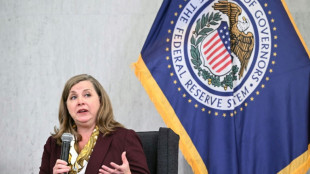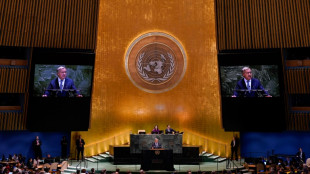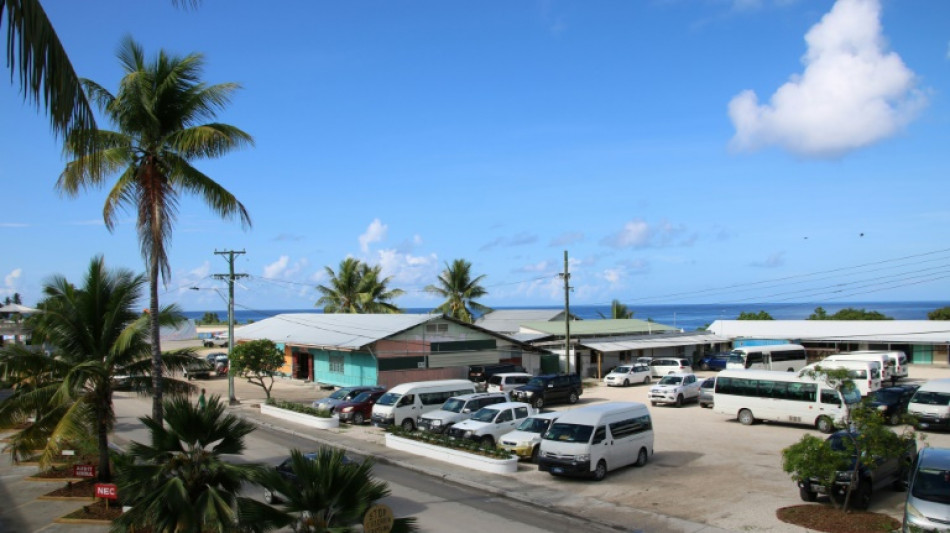
-
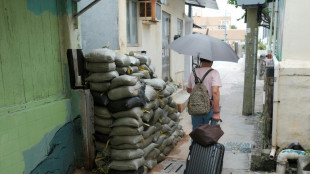 Schools shut, flights axed as Typhoon Ragasa nears Hong Kong, southern China
Schools shut, flights axed as Typhoon Ragasa nears Hong Kong, southern China
-
Hundreds trapped as typhoon triggers barrier lake burst in Taiwan
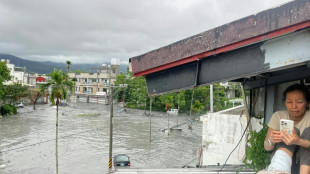
-
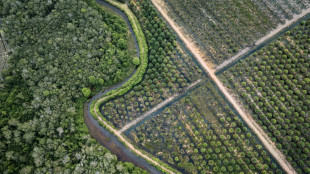 EU proposes new delay to anti-deforestation rules
EU proposes new delay to anti-deforestation rules
-
Man City have 'recovered many things': Guardiola

-
 Thailand to 'clarify misunderstandings' after SEA Games petanque ban
Thailand to 'clarify misunderstandings' after SEA Games petanque ban
-
Denmark brands mystery drone flights 'serious' attack
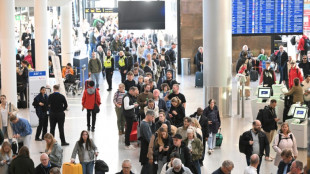
-
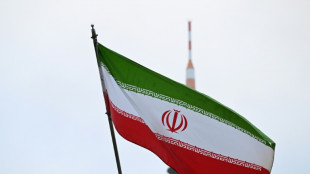 Iran executed at least 1,000 this year in prison 'mass killing': NGO
Iran executed at least 1,000 this year in prison 'mass killing': NGO
-
France's Dassault says can build European fighter jet without Germany

-
 Former umpire 'Dickie' Bird dies aged 92
Former umpire 'Dickie' Bird dies aged 92
-
Ghana deports at least six west Africans expelled by US to Togo

-
 Bradley admits thoughts linger about having played in Ryder Cup
Bradley admits thoughts linger about having played in Ryder Cup
-
EU queries Apple, Google, Microsoft over financial scams

-
 OECD raises world growth outlook as tariffs contained, for now
OECD raises world growth outlook as tariffs contained, for now
-
Former umpire Harold 'Dickie' Bird dies aged 92

-
 Cycling worlds bring pride to African riders despite disadvantages
Cycling worlds bring pride to African riders despite disadvantages
-
Stocks diverge with eyes on key economic data

-
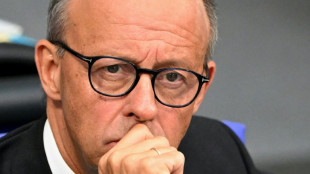 German business groups pressure Merz over ailing economy
German business groups pressure Merz over ailing economy
-
Drone flights 'most serious attack' on Danish infrastructure, PM says
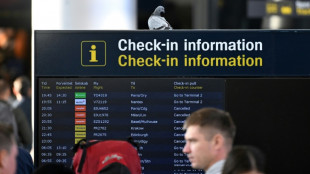
-
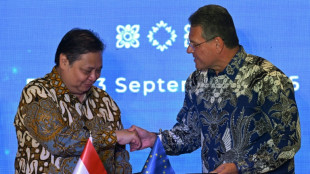 Indonesia, EU sign long-awaited trade deal
Indonesia, EU sign long-awaited trade deal
-
Howe confident Newcastle will find 'X factor'

-
 Trump returns to UN podium and Zelensky talks
Trump returns to UN podium and Zelensky talks
-
Tech migrants 'key' for US growth, warns OECD chief economist
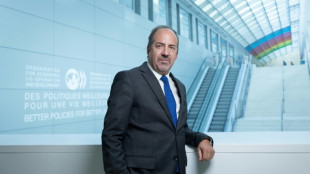
-
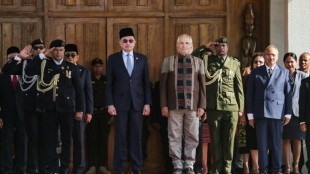 East Timor to become ASEAN bloc's 11th member in October
East Timor to become ASEAN bloc's 11th member in October
-
OECD ups world economic outlook as tariffs contained, for now

-
 India bids tearful farewell to maverick musician
India bids tearful farewell to maverick musician
-
Sunset for Windows 10 updates leaves users in a bind

-
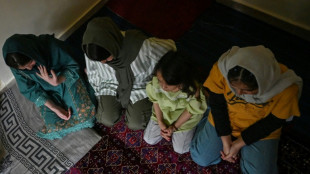 Hopes of Western refuge sink for Afghans in Pakistan
Hopes of Western refuge sink for Afghans in Pakistan
-
'Real' Greek farmers fume over EU subsidies scandal
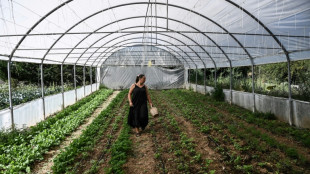
-
 Trump to see Zelensky and lay out dark vision of UN
Trump to see Zelensky and lay out dark vision of UN
-
US lawmaker warns of military 'misunderstanding' risk with China

-
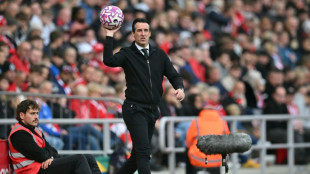 Emery seeks Europa League lift with Villa as Forest end long absence
Emery seeks Europa League lift with Villa as Forest end long absence
-
Egypt frees activist Alaa Abdel Fattah after Sisi pardon
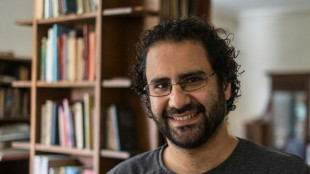
-
 Gibbs, Montgomery doubles as Lions rampage over Ravens
Gibbs, Montgomery doubles as Lions rampage over Ravens
-
Asian markets struggle as focus turns to US inflation

-
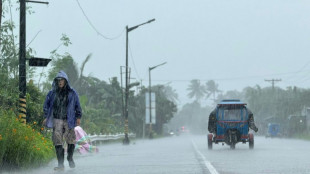 Schools shut, flights cancelled as Typhoon Ragasa nears Hong Kong
Schools shut, flights cancelled as Typhoon Ragasa nears Hong Kong
-
Maverick Georgian designer Demna debuts for Gucci in Milan
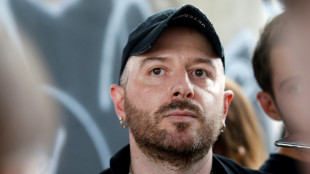
-
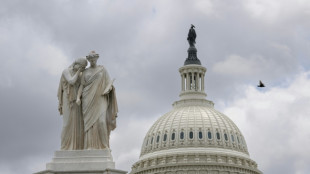 What do some researchers call disinformation? Anything but disinformation
What do some researchers call disinformation? Anything but disinformation
-
Jimmy Kimmel show to return Tuesday
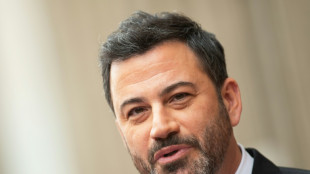
-
 Unification Church leader arrested in South Korea
Unification Church leader arrested in South Korea
-
CXAI Named a Representative Vendor in Gartner's 2025 Market Guide for Workplace Experience Applications

-
 BrightRock Gold Taps Strategic Advisors from Sidney Resources’ $8M Funding Success to Drive Midnight Owl Project Forward
BrightRock Gold Taps Strategic Advisors from Sidney Resources’ $8M Funding Success to Drive Midnight Owl Project Forward
-
RightCapital Launches Advanced Business Planning Features, Enabling Advisors to Deliver Expanded Value and Clarity to Business Owners

-
 Caldwell Expands Global Footprint with Opening of Dubai Office; Welcomes Rob Wilder as Managing Partner
Caldwell Expands Global Footprint with Opening of Dubai Office; Welcomes Rob Wilder as Managing Partner
-
Preservica Expands Embedded SharePoint Integration with Unified Search Across Active, Archived and Legacy Content

-
 42WEST, a Subsidiary of Dolphin, Drives Global Reveal of 30 Ninjas' Asteroid – Backed by Google's Android XR and CAA
42WEST, a Subsidiary of Dolphin, Drives Global Reveal of 30 Ninjas' Asteroid – Backed by Google's Android XR and CAA
-
tZERO Secures FINRA Approval to Trade Corporate Debt, Expanding Multi-Asset Capabilities

-
 Jaguar Health Presenting September 25 at Emerging Growth Conference and September 30 at Lytham Partners Fall 2025 Conference to Provide Updates on Near-Term Catalysts
Jaguar Health Presenting September 25 at Emerging Growth Conference and September 30 at Lytham Partners Fall 2025 Conference to Provide Updates on Near-Term Catalysts
-
GreenX Launches Comprehensive Digital Ecosystem at Kuala Lumpur Summit, Ushering in a New Era of Green Finance

-
 NDT Pharmaceuticals' Good Salt(TM) Life Subsidiary Unveils Scalable Antimicrobial Platform to Drive Health, Safety, and Sustainability Across Global Markets
NDT Pharmaceuticals' Good Salt(TM) Life Subsidiary Unveils Scalable Antimicrobial Platform to Drive Health, Safety, and Sustainability Across Global Markets
-
Crexendo Enhances Business Communications With Innovative Secure Cloud Faxing


Pacific microstate sells first passports to fund climate action
A remote Pacific nation has started selling passports to fund climate action, but is so far struggling to attract new citizens to the low-lying, largely barren island.
Pacific microstate Nauru, one of the world's smallest nations, has a novel plan to fund its fight against climate change by selling so-called "golden passports".
Selling for US$105,000 each, Nauru plans to drum up more than US$5 million in the first year of the "climate resilience citizenship" programme.
Almost six months after the scheme opened in February, Nauru has so far approved just six applications -- covering two families and four individuals.
Despite the slow start -- Nauru eventually hopes to sell 66 passports in the scheme's first year -- President David Adeang remained upbeat.
"We welcome our new citizens whose investment will assist Nauru to secure a sustainable and prosperous future for generations to come," he told AFP on Thursday.
Nauru believes the passport programme could eventually generate $43 million -– or about 500 successful applicants -- which would account for almost 20 percent of total government revenue.
But there are fears the scheme could be ripe for exploitation.
Edward Clark, who runs Nauru's climate passport programme, said one application has already been withdrawn after officials flagged "adverse findings" during background checks.
"The application would have been rejected had it not been withdrawn," he told AFP.
A previous Nauru attempt to sell passports ended in disaster.
In 2003, Nauru officials sold citizenship to Al-Qaeda members who were later arrested in Asia.
Among the first batch of climate passports approved was an unnamed German family of four living in Dubai, said Clark touting the "major milestone".
- 'Political volatility' -
"They were looking for a second citizenship to provide them with a Plan B given the current global political volatility."
The Nauru passport provides visa-free entry into 89 countries, including the United Kingdom, Ireland, United Arab Emirates and Hong Kong.
More than 60 different nations offer some form of migration for investment schemes, Australia's Lowy Institute has found.
Pacific nations such as Vanuatu, Samoa and Tonga have all dabbled in selling passports.
The island republic of Nauru sits on a small plateau of phosphate rock in the sparsely populated South Pacific.
With a total landmass of just 21 square kilometres (eight square miles), it is one of the world's smallest nations.
Unusually pure phosphate deposits -- a key ingredient in fertiliser -- once made Nauru one of the wealthiest places, per capita, on the planet.
But these supplies have long dried up, and researchers today estimate 80 percent of Nauru has been rendered uninhabitable by mining.
What little land Nauru has left is threatened by encroaching tides. Scientists have measured sea levels rising 1.5 times faster than global averages.
Nauru will eventually need to relocate 90 percent of its population as creeping seas start to eat away at its coastal fringe.
The first phase of this mass relocation is estimated to cost more than $60 million.
J.Oliveira--AMWN
